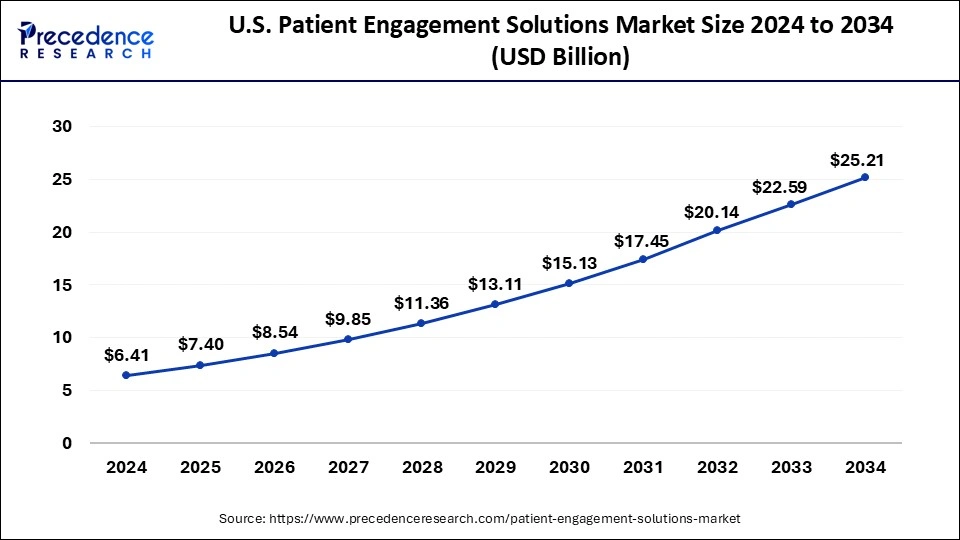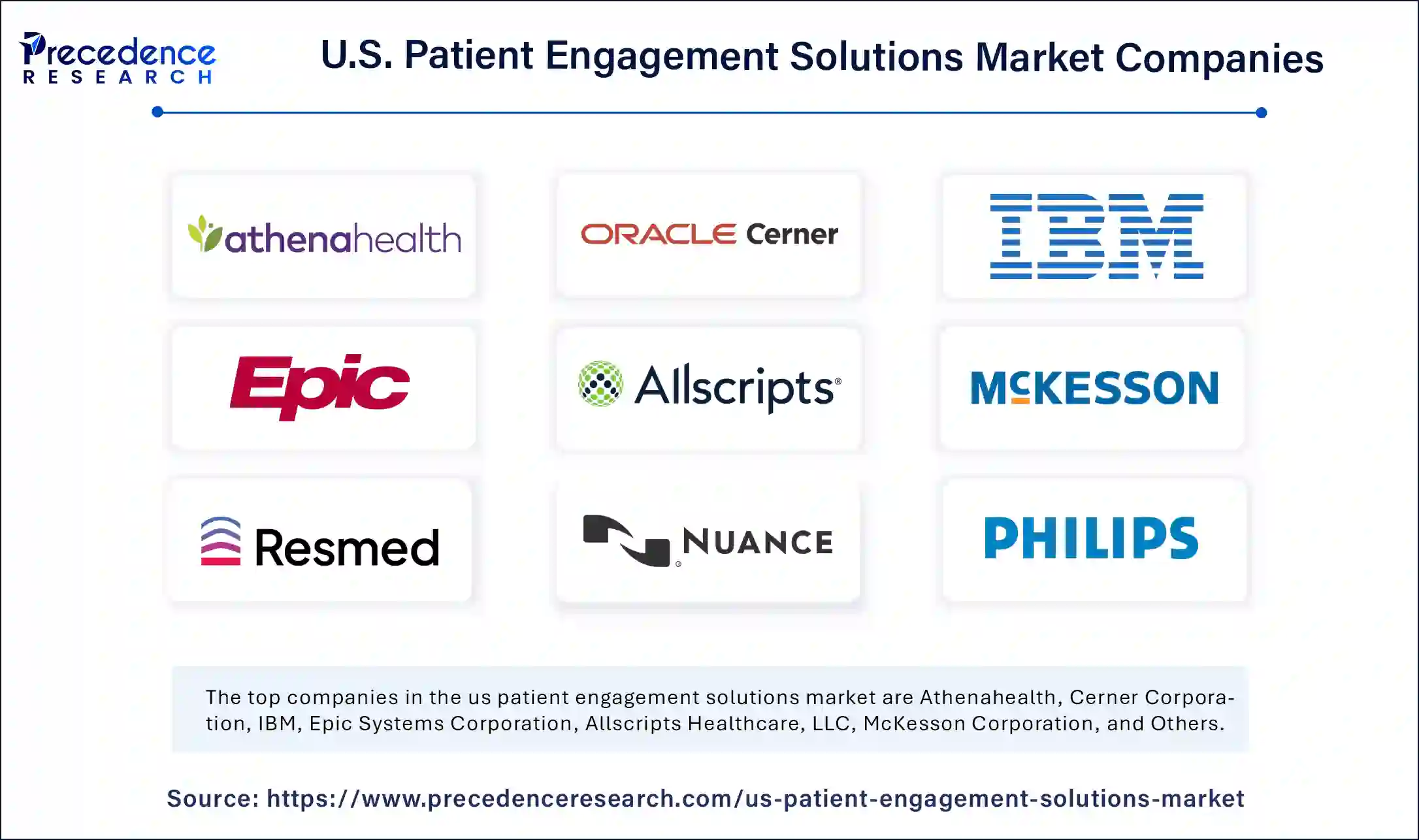The U.S. patient engagement solutions market size surpassed USD 6.41 billion in 2024 and is projected to attain around USD 25.21 billion by 2034 with a CAGR of 14.68% from 2025 to 2034.
Get a Free Sample Copy of the Report@ https://www.precedenceresearch.com/sample/5767
U.S. Patient Engagement Solutions Market Key Points
-
The software segment was the leading component in the U.S. patient engagement solutions market in 2024.
-
The services segment is expected to register a significant CAGR over the forecast period.
-
The chronic diseases segment had the highest market dominance by therapeutic area in 2024.
-
The fitness segment is projected to expand at a remarkable CAGR in the future.
-
The communication segment held the largest share among functionalities in 2024.
-
The patient education segment is forecasted to grow at the highest CAGR during the assessment period.
-
The health management segment led the market by application in 2024.
-
The home healthcare management segment is likely to experience the fastest CAGR growth in the forecast period.
-
The providers segment maintained the highest market share in the end-use category in 2024.
-
The payers segment is set to witness substantial growth during the studied period.
-
The web/cloud-based delivery model had the largest market contribution in 2024.
-
The on-premise segment is expected to expand steadily in the coming years.
Impact of Artificial Intelligence on the U.S. Patient Engagement Solutions Market
Artificial Intelligence (AI) is transforming the U.S. patient engagement solutions market by enhancing personalization, automation, and real-time decision-making in healthcare. AI-powered chatbots, virtual assistants, and predictive analytics are improving patient interactions by providing instant responses, appointment scheduling, and medication reminders.
Machine learning algorithms analyze patient data to identify health trends, enabling proactive care and early disease detection. AI also enhances remote patient monitoring by processing real-time health data, allowing healthcare providers to offer timely interventions and personalized treatment plans.
AI is also revolutionizing data management and analytics within patient engagement solutions. Natural Language Processing (NLP) and AI-driven insights help healthcare providers analyze large volumes of patient data, improving clinical decision-making and treatment outcomes. Moreover, AI-powered automation reduces administrative burdens, allowing healthcare professionals to focus more on patient care.
The integration of AI with telehealth and wearable devices is further driving engagement by ensuring continuous monitoring and seamless communication between patients and providers. As AI technology continues to evolve, it is expected to play a crucial role in improving patient satisfaction, reducing healthcare costs, and enhancing the overall efficiency of patient engagement solutions in the U.S.
U.S. Patient Engagement Solutions Market Overview
The U.S. patient engagement solutions market is evolving with the increasing reliance on digital health platforms to enhance communication between patients and healthcare providers. These solutions are enabling real-time health monitoring, remote consultations, and data-driven decision-making, making healthcare more efficient and personalized.
Market Scope
| Report Coverage | Details |
| Market Size by 2034 | USD 25.21 Billion |
| Market Size in 2025 | USD 7.40 Billion |
| Market Size in 2024 | USD 6.41 Billion |
| Market Growth Rate from 2025 to 2034 | CAGR of 14.68% |
| Base Year | 2024 |
| Forecast Period | 2025 to 2034 |
| Segments Covered | Component, Therapeutic Area, Functionality, Application, End use, Delivery Type, and Regions |
Market Dynamics
Market Drivers
Key factors driving the market include the rising focus on preventive healthcare, growing patient awareness, and the need for improved healthcare efficiency. The COVID-19 pandemic has also accelerated the adoption of virtual care and telemedicine, highlighting the importance of digital patient engagement. Additionally, advancements in AI and big data analytics are transforming how healthcare providers interact with patients.
Market Opportunities
The development of AI-driven chatbots, automated reminders, and personalized healthcare recommendations is enhancing patient engagement strategies. The increasing penetration of smartphones and health-tracking apps is providing new opportunities for real-time health management. Furthermore, interoperability improvements are allowing seamless data sharing between different healthcare providers.
Market Challenges
Despite promising growth, the market faces obstacles such as regulatory complexities, cybersecurity threats, and resistance from traditional healthcare organizations to transition to digital engagement platforms. Additionally, data fragmentation remains a key challenge, as integrating multiple sources of patient data into a unified system requires significant investment.


